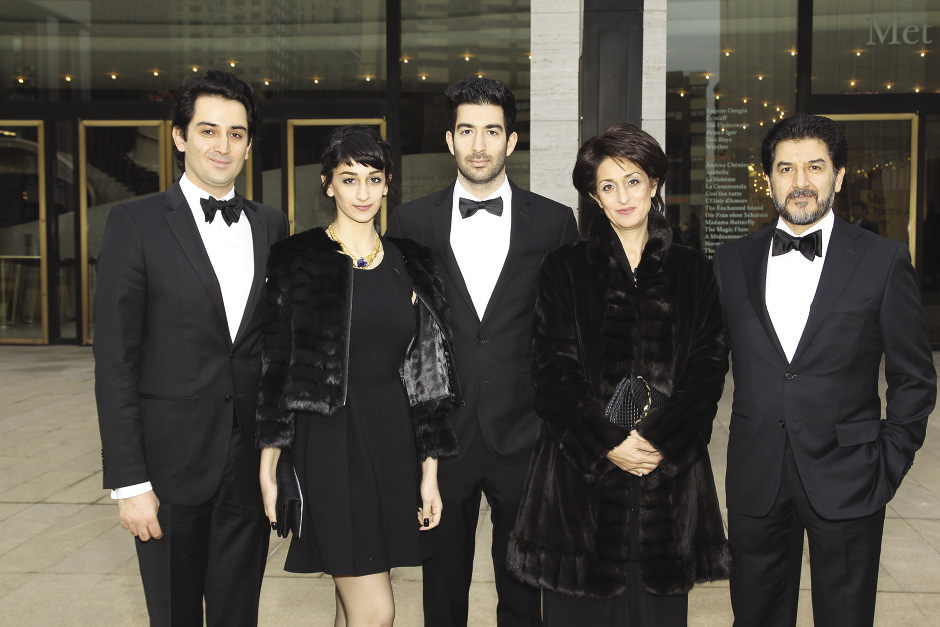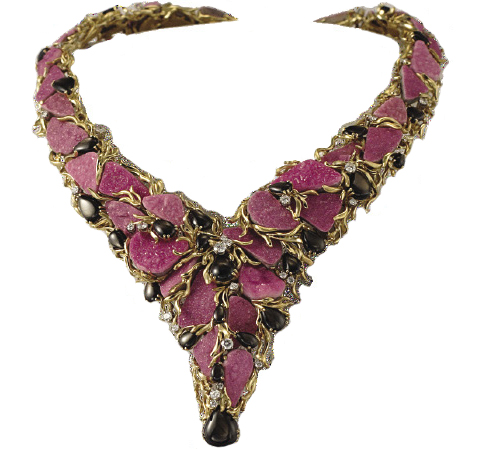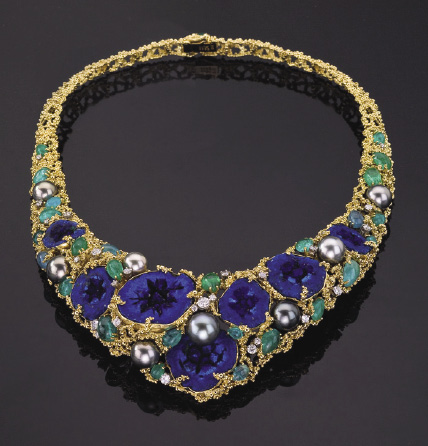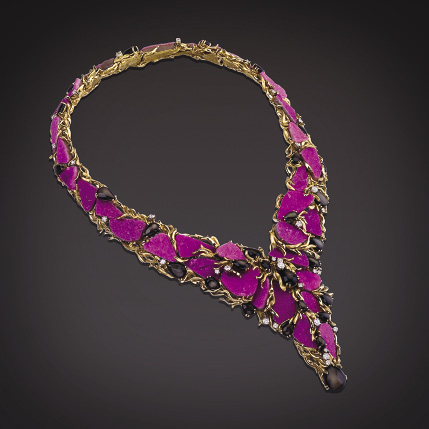
Editors’ Note
Majid Pishyar is an Iranian businessman who, in addition to his current post, is the owner of football clubs S.C. Beira-Mar out of Portugal and previously FC Admira Wacker Mödling out of Austria, as well as the former owner of Servette FC out of Switzerland.
Company Brief
32Group (www.32group.com) links demand and supply by using its vast global network of independent resources and long-term experience, and working closely with members and partners with whom it has been engaged for decades. From their offices around the globe, their dedicated and knowledgeable team is ready to get their clients’ products into almost every country, as well as efficiently providing any of their products and services sourcing requirements. 32Group’s divisions run the gamut, from Agriculture & Food Stuff to Yarns & Textiles, and everything in between.
What is the history of 32Group?
I am the third generation owner of our family’s business. When I was 20 years old, I was in college, but it was then that my father saw my potential and tasked me with taking over the family business.
In 1975, I started getting heavily involved in the business, because I felt my father was outdated in his way of thinking – the same way my son feels now about me.
At that time, we had many different businesses because my grandfathers together had developed a business – one of them was involved in trade; the other was involved in construction and development. Together they joined forces and got involved in many activities.

Necklace by Gilbert Albert
It was not like today where if you want to have a production line, you should buy and hold a lot of inventory in advance at your warehouse, even machinery and raw material; today, you get your goods directly from the port to the factory, and you won’t lose money or time. Because of that, we got involved in many businesses: manufacturing, machinery, and raw material.
I noticed that we were engaging in many different activities back then. It was at that point that I decided to put my own system in place. It was, for me, a traditional way of handling the company.
I am Persian and, because I wanted to make my company global, I decided it was important to recognize the sign of my culture and my country. In Farsi, we have 32 letters in our alphabet, so that’s why I created 32Group, which was the beginning of a new structure. Now we have 32 activities.
I had a lot of difficulty initially because, often, when you try to make the “culture” of business work in a different country, it doesn’t always work the same.
With this in mind, I decided to put all of our business activities under different entities. They belong to one family, but they are different companies even with different management, depending on the product.
This is the way 32Group was started. Now, after 38 years, it is a global company, because I grew it never believing that there were any rifts between countries. I believe we are all a family no matter where we’re from, and we should not forget that.
With this belief, I didn’t limit myself with borders, and I’m still working with the same enthusiasm I had when I was 20 years old.

Necklace by Gilbert Albert
Are there certain synergies that link all of the businesses?
Because of the nature of the economic market, each country is structured differently; therefore, each business is run differently. For example, some countries do not want to be involved with manufacturing, but they will buy ready-made products, while others want manufacturing done in their countries. It is different in each market. I have tried to establish our company in each country by accepting their preferences, while implementing a specific system.
Do you anticipate growth throughout the businesses, and where will it come from?
I hope for continued growth in each of my companies. However, growth also depends on the individual market. Some markets are good for manufacturers; some are good for construction. I carefully analyze each market to determine where we have the greatest growth potential. For example, eighteen years ago, I started to develop our business in Dubai, when we saw what was happening there. Seventy percent of the world’s cranes were in Dubai then. While we grew in Dubai, we continued to remain active with other divisions in other countries, which is what helped to makes our company strong today.
Where is Dubai today? Is the market strong and stable?
It’s not as strong as it was before. Dubai became Dubai because its other neighbors were struggling to develop.
Dubai always gets the benefit of countries that are having difficulties, like Egypt recently. They are ideally located, and benefit from the general unrest in the region.
I believe it was a mistake that the Dubai government decided to compete with the private sector. They were in a hurry to grab as many specific projects and parts of the market as possible, and it was wrong. Today, they have a problem because there is a cost to maintain all of these buildings.
If governments just pay attention to providing the basic infrastructure and services, they will be much better off than being a competitor for the developers.
I have told them this many times. Now they are struggling because they have a lot of projects in front of them, and it’s not easy to maintain this city. They have to increase the cost of living to have the power to handle it. I hope they can manage it, but it’s not like it was before.

Necklace by Gilbert Albert
Do you see true economic recovery taking place around the world?
Two years ago, it started in the U.S. This past recession was a terrible one, because of global markets. If you have a problem in any part of the world, that wave affects things elsewhere. It started in the U.S. and went to Europe, and also the Far East and Middle East. If we are going to have another one, it will be worse than this because it’s now a global market. Before, you were at home in your city and there were no side effects from something happening in faraway markets.
The U.S. is the best location for anyone who wants to invest now, because of the mass projects to develop the infrastructure for the country – jobs and creativity come from these large projects.
At this time, the market is going to be attractive in the U.S. We’ll then see what will happen in the future.
What lead to your focus on the jewelry business with Gilbert Albert?
Because Gilbert Albert himself is a unique artist, I felt I had to do something to keep this name alive and give the world a chance to see his work.
This was the reason I bought this company. After that, I started to restructure it. When you want to be something interesting in the market, I believe you have to start in New York, so I put my time into having a major store here. In the future, we plan to open boutiques in other cities around the U.S.
The brand originated in Geneva, Switzerland, but even Cartier and others came to New York to build a strong presence for their brands. In Geneva, the market was not big enough alone to create strong growth.
In a very short amount of time, people in New York began to know who we were. It is a good time to go to market with this luxury product. Since we opened New York, we also opened a boutique in Paris. The brand continues to grow.
Who is the client for the brand?
I see Gilbert Albert’s pieces as works of art, and you cannot fully define who your customer is because when they appreciate the piece’s beauty, it doesn’t matter who they are – they will buy it.
Last year, when we had been open for only one week, a couple from another city came and bought one piece for $350,000. For them, that was a lot of money based on their assets, but they had to own the necklace.
Sometimes, people start to look for a stone; others want something more unique. To me, art is not just a stone – it’s alive and is something special, no matter the price.
Are these pieces to wear or are they are investment pieces?
They’re both to wear and for investment, and they’re very unique. Every day when I look at these pieces I am still in awe of their beauty.
There are a variety of prices starting at $6 million, and it comes down from there.
As the brand gains a following, will you branch out into other products beyond jewelry?
When a family comes into a store, it’s important that they all find something to buy that is appropriate for each of them.
Two years ago, we developed a new line of interchangeable jewelry that is made in sterling silver. Now a teenager could own a piece of Gilbert Albert jewelry. It turned out to be a very successful collection.
My daughter is 21 years old, and she’s in charge of continuing to make the brand relevant to a younger audience, and my son – who is 30 years old – is also involved in the daily operations of the stores. My children put their own thinking into this brand, and have really taken it to the next level.
Are you able to keep a family feel as the business has grown?
We have kept the family feel by force; it has not been easy. When you are a creative person, people will often say you can’t possibly achieve something extraordinary.
Through insisting, you manage to stay on course. When I do something, my children usually accept it. They may not like it, but this is an asset for the family.
They challenge my new ideas very often and resist some of them, but I know that if I don’t pursue those ideas, they will die out.
Do you take time to reflect on all you’ve built?
I’m always thinking of the next idea, but at the same time, it’s very painful, because when you are creating something, you are always alone. My family and friends, and my good managers, are also helping me a lot, but I always create challenges for them every time I create something new.
As high as you fly today, there is always the opportunity for you to fly higher again. I live by this idea.
For me, creating something is as necessary as blood and oxygen. I love it when I create things.
Sometimes I get tired, but if I have one morning to rest, by that afternoon, I’m ready to get up and start again. This is like farming. When you plant the seed, you water it, fertilize it, and after that, you see the fruit.
When you are with your family, are you ever able to not talk about business?
I try to because I don’t want my children to always have the business on their minds. This is a difficult job for me and for them. I’m both their boss and their father.
I try to be a father when I’m home. Sometimes they ask business-related questions, and I try to give them short answers and then discuss it in detail when we are out of the house. Even when we are out to dinner or lunch, I try to talk about other things – if you’re always talking business, your performance will suffer.
How do you balance running all of the businesses?
When your mind is truly engaged, you can always handle it. It doesn’t matter where you are. It’s like asking how you take care of your children. If you’re busy or tired but you see them in front of you, you automatically know how to care for them.
What are you most focused on for the future to make sure the business continues to grow?
The U.S. market is going to be fantastic for more than 20 years, but the rest of the world depends on how the other markets show themselves. Nobody can forecast the future with 100 percent certainty.
I think we should be ready all the time to see the signs of a good market. Anybody at the right place at the right time can experience growth.
But in general, for the U.S., now is the time.
Will you ever slow down?
No, because I have a responsibility to the people who work with me. I get tired, but I cannot relax when I see my managers waiting for answers. They have responsibilities too and, although they aren’t the owners of the business, they are most concerned about every situation.
When they see me, hear my voice, and share with me their questions or concerns, they become more comfortable.
Because of that, I could not forgive myself for taking a rest while the market and my managers are waiting for me.•
Source:






























